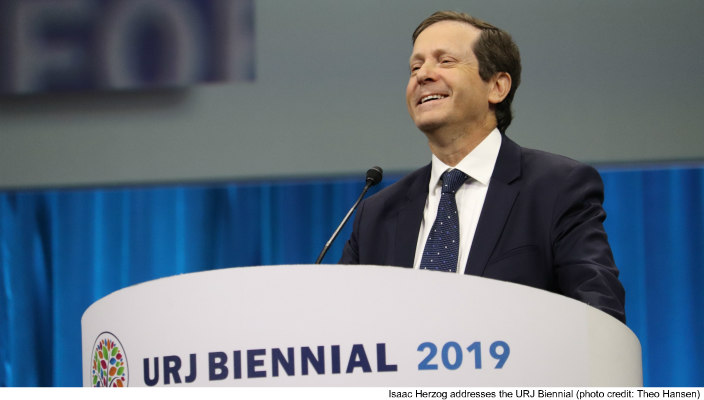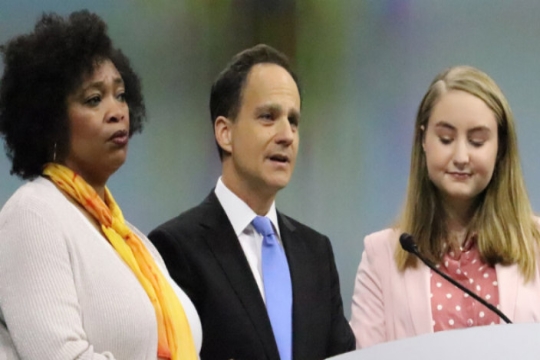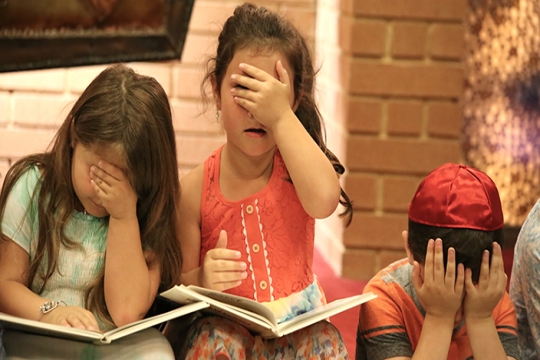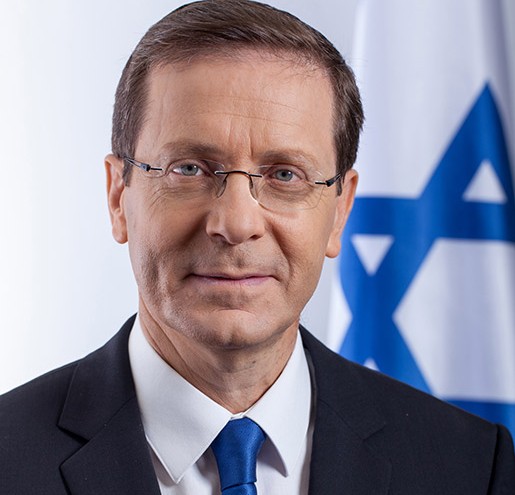
Editor's note: The text that follows was presented before a live audience at the 2019 URJ Biennial on Thursday, Dec. 12.
Shalom to all of you, friends. It's a huge honor and pleasure to be in this awesome gathering. Your movement is incredible. I have huge respect for it, and I think there should be really proud of what you've done and your achievements.
Thank you, dear Rabbi Lea Mühlstein, a member of the executive of the Jewish Agency. She represents the Movement in our institutions together with other very close friends – Gilad Kariv, Yaron Shavit, and many others.
And, of course, I want to say a heartfelt thanks and gratitude to my good friend, Rabbi Rick Jacobs, for his leadership and for his inner strength, which radiates all throughout the Jewish world.
It's also an opportunity to thank some very close friends. [Outgoing URJ Chair] Daryl “Golda” Messinger and the incoming URJ chair, Jennifer Brodkey Kaufman, as well as my good friend Carole Sterling, and my good friend, Rabbi David Saperstein. All of you encompass a rich, impressive activity. And I've been telling Israelis day in and day out, who respect [your Movement] but simply don't know that there is much more ahavat Israel than people understand – it is our duty to uplift it.
I say to many Israelis: Every day I read books and literature and articles and theological discourse and impressive programs coming out of your synagogues and congregations, theological seminaries, and institutions. It is just incredibly impressive. And I think that you are becoming a major, major pillar of world Jewry today. And as such, in this very important gathering, we should analyze the major challenges of the Jewish people, which we, the Jewish Agency, are dealing with day in and day out.
Allow me also to congratulate Ambassador Dan Shapiro and Julie Shapiro [recipients of the Alexander M. Schindler Award for Service to World Jewry]. I can say from my own experience as then leader of the opposition and candidate for prime minister that Dan Shapiro was the most respected civil servant and representative of the United States in Israel. And it was a true honor and treasure to work with him.
So what are the three main challenges as I see them in my own capacity of leading the biggest Jewish organization in the world – the organization that has established the state of Israel? I sit in the room in which David Ben-Gurion declared the State of Israel and thereafter was commissioned to bring millions of olim (immigrants). We brought four million and this year 35,000 strong from 40 countries.
What are the main challenges as we deal with them today, encompassing the entire picture of the global Jewish map?
First and foremost, in my mind: How do we prevent an irreversible rift between the two major communities together with all others – between what I call Jerusalem and Babylon, 7 million Jews in Israel and 7 million Jews in North America?
This is a major challenge, and it's up to us to educate our kids and to teach each other to know each other better. We can have disputes. We can have arguments. We can have different perceptions of life. But this must be done amidst one big family. This must be a dialogue amidst differences. This is essential to the core being of our people.
History will judge our generation. Did we learn the lessons of the past? Did we overcome our differences? It requires everybody to be in this dialogue, and it requires respecting everyone around the table equally. And it requires that we again say that the love of Israel, ahavat Israel, goes way beyond that leader or that leader, that political system or that political decision.
The second challenge, in which we're all engulfed, has to do with the fact that in this very era – where the democratic discourse is engulfed with hate and fear, where the world order of post-WWII is eroding, and the lessons of the Holocaust are somewhat fading away in certain societies – how do we combat hate and fear and antisemitism together?
This is a major challenge that our communities are all faced with – including North America, but definitely elsewhere.
And the third challenge is very positive, but still a huge challenge for our people. There are millions of human beings out there who knock on our doors and say, “We want to be part and parcel of the Jewish nation.” We should open the doors, and we should open our hearts, and we should receive all of them with great love and affection all over the world. As Ruth said to her mother-in-law Naomi, Amech ami, ve’elohayich elohai, “Your people shall be my people, and your God my God.”
This is the pinnacle of how we at the Jewish Agency look at the entire global Jewish tent. And as being the entire geo-global Jewish table of decision making, we're extremely proud to be partners with your movement in a variety of programs. You see our shlichim, our emissaries, all over the place, and they then come back home and tell your story with great respect and affection and impact on Israeli society.
And the third pillar has to do, of course, with the fact that we are dealing with delivering the Jewish message from abroad into Israeli society proper. We are commissioned by law and covenant to represent the entire global Jewish picture in Israel. And as such, we are voicing the voice of pluralism, the voice of world Jewry, the immense wealth of Jewish life and richness.
And, of course, we bring back to you with 4,000 emissaries, with partnerships, with twinning schools, with missions, with immersive experiences, trying to encompass the intertwining amidst a challenging era of unaffiliated members of the community or alienated or those who are asking questions.
It's all legitimate and it's all something that we are accustomed to as part of Jewish being, which is always challenging in asking questions. But, of course, we must bring answers together. And that is why I'm extremely proud to be here with you today. Because I believe that your movement is one of the most important elements in Jewish life today, and you are partners of ours in so many missions and in so many challenges together.
And the voice that resonates, and I'm bringing this voice from Israel to you: For a moment try to ignore some of what people say in eight-second soundbites and understand that there's enormous love of world Jewry in Israel. It requires a lot of education. It requires a social change. It requires opening the hearts. We can only do it together.
But most importantly, as there is also some politics involved, I challenge you and I call upon you, as a Movement, to flex your muscles and take part in the election process to the Zionist institutions. You’re impacting this global Jewish table. You're bringing your message forward. There are so many things that are intertwined with this activity that impacts the dialogue between all segments of Jewish life abroad and in Israel – and definitely a common Jewish table with the government and the legislators of Israel.
I see a very impressive Movement in front of me. I encourage you go back to your communities, remember that the Jewish Agency is your partner, and try as much as possible to deliver the message that, yes, you can have an impact.
Thank you very much. Todah rabbah to all of you.
Looking for more addresses from the URJ Biennial? Check out this roundup.
Have something to say about this post? Join the conversation in The Tent, the communications and collaboration platform for congregational leaders of the Reform Movement. You can also tweet us or tell us how you feel on Facebook.
Related Posts

The Shalom Collaboration: How Performing at the URJ Biennial Changed Our Career Trajectory

"What Will You Do at Such a Time as This?"

